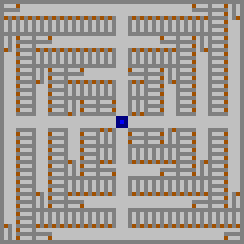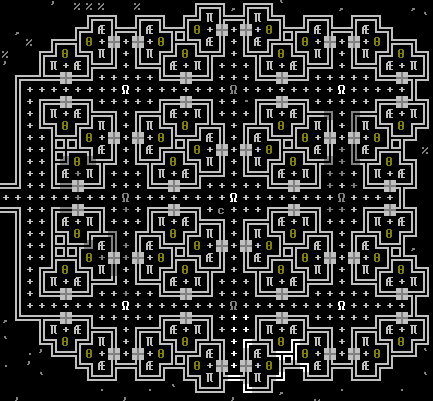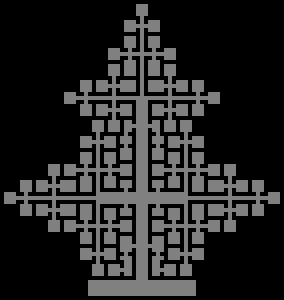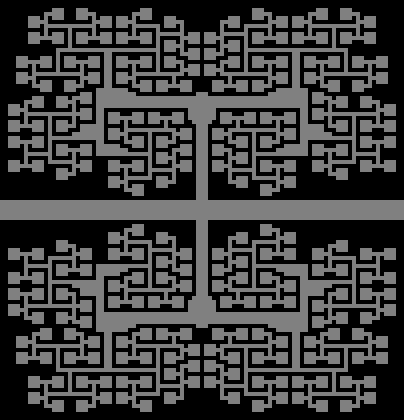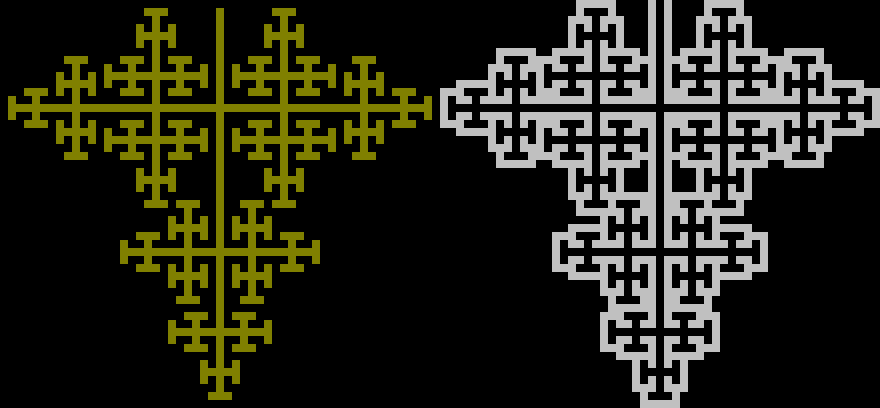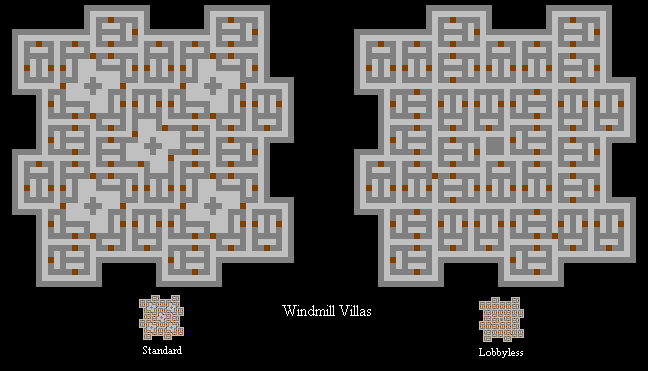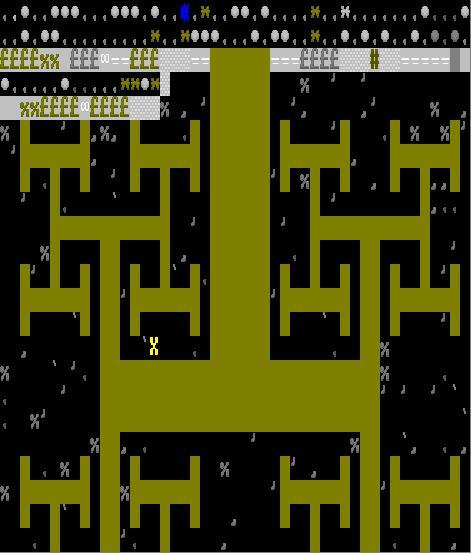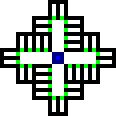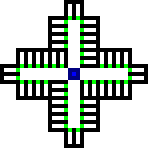- v50 information can now be added to pages in the main namespace. v0.47 information can still be found in the DF2014 namespace. See here for more details on the new versioning policy.
- Use this page to report any issues related to the migration.
40d:Bedroom design
There are many ways to design the layout of bedrooms. Designs must consider simplicity and ease of designating, efficiency, and aesthetics. The ability to modify the design to enlarge, improve, or add rooms can be important as well. Proximity of the rooms to noise should also be considered.
Many of the designs shown here were taken from this forum post.
Plain square design
If it is 2×2, 3×3 or more, square designs are probably the first choice of many players. Easy to plan, easy to put in place, this kind of design is one of the best when the player value his playing time instead of the overall layout of his fortress. While square designs are easy to reproduce en masse, most are not optimized either for beauty or space efficiency, two aspects that other designs excel at.
Template:Qd Template:Qd Template:Qd
Line design
Line designs have the advantage of being very space efficient and very adaptative. From 1×1 to 1×4 and longer, it can fit almost anywhere, can be upgraded later on as long as you have the space behind your first original line and do not need excessive corridor space for the bedroom access. Simply dig a few lines out of an access tunnel already in use in your fortress and voila, you have new living quarters. This kind of minimalistic design is perfect for when the economy kicks in, as it can be adapted in a flash for any kind of low wage citizen.
Template:Qd Template:Qd Template:Qd
THLawrence's Living Pods
Apartment Complex: Template:Qd Template:Qd
Lobby: Template:Qd Template:Qd
This design is compact and allows for a large number of rooms. Each room has 3 tiles and a door. To add the apartment complex build it one level above or below the lobby. The design can be stretched to make the rooms 3x2 or 3x3 depending on your preference. Though not as impressive as the fractal patterns it is very efficient in that it can allow for large numbers of dwarves to easily access the main hallway.
GnomeChomsky's Tessellated Apartments
Template:Qd Template:Qd Template:Qd
Template:Qd
Template:Qd
Template:Qd
Access can be from above and/or below by the stairs, or a hallway can be run into the dining room level by removing the bedroom at one of the cardinal points. This design can be repeated as far as desired in the X, Y, and Z directions.
High density single floor housing
This fractal-inspired design combines space efficiency with wider access hallways to alleviate traffic. Stairs are placed in the middle, and the design can expand indefinitely. To decrease the size, remove the outermost perimeter hallway, and all connected bedrooms. To increase the size, use the picture as a guide and follow the same radial pattern.
| Size | Capacity | Max walk distance from center |
|---|---|---|
| 29x29 tiles | 48 dwarves | 23 steps |
| 45x45 tiles | 120 dwarves | 39 steps |
| 61x61 tiles | 224 dwarves | 55 steps |
| 77x77 tiles | 360 dwarves | 71 steps |
Fractal designs
Betting on design beauty and on geometrical symmetry first, fractal designs can also be at the same time very space and walk efficient. They however require a lot of time and space both to plan and execute and are most likely out of reach of all but the most serious players. Most players however agree to say that they are the most incredible of all the designs around, if not the for the sheer challenge of successfully executing something as complex, then for the extra touch it give to the whole fortress as a whole once it is done.
Vaniver's Greek Cross design
Minimizing walking distances requires good use of vertical space. This plan is simple, scalable, and only takes up a few floors- 6 if you have 32 per floor, 4 if you have 48. The maximum walking distance should be less than 20 (I'm not sure how much movement stairs take).
| Rooms | |
|---|---|
| Furniture |
Animal trap • Anvil • Armor stand • Bed • Bin • Bucket • Cabinet • Cage • Coffin • Container • Restraint • Seat • Statue • Table • Weapon rack |
| Access | |
| Constructions | |
| Machine & Trap parts |
Axle • Gear assembly • Millstone • Screw pump • Water wheel • Windmill • Lever • Pressure plate • Trap • Support |
| Other Buildings | |
| Related Articles | |
